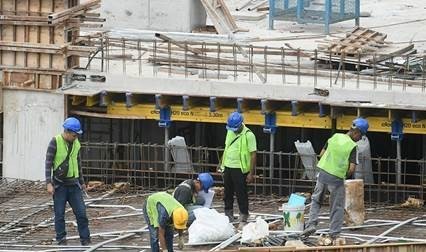
PETALING JAYA: The economy is expected to expand slightly after a near record 5.6% drop last year, but it is no cause for celebration, according to a senior economist.
Quah Boon Huat, of Malaysian Rating Corporation Bhd, said the government’s attempts to help Malaysians recover would have minimal impact on the post-pandemic economy.
“The problem with the packages introduced thus far is that they all largely follow the same unsustainable minimalist strategy that only provides a temporary fix,” he said.
Taking the most recent Pemulih package as an example, Quah questioned how headlining initiatives like cash handouts through the Bantuan Prihatin Rakyat programme, EPF withdrawals and the loan moratorium would help those struggling in the long run.
“It appears focused mainly on keeping the poor and vulnerable afloat. The half-hearted package will not, for example, spur job creation or strengthen incomes,” he told FMT.
“There appears to be an apparent lack of understanding of what real recovery efforts should entail. For example, it is important to link measures that address current challenges to long-term efforts aimed at improving socioeconomic resilience and growth potential. There has been no sign of this.”
He said Malaysia’s economic struggles are not new, and that the pandemic has only accelerated their impact.
Before the pandemic impact sank in, the Khazanah Research Institute had noted that the middle class appeared to be shrinking, and the World Bank Group found that low and middle-income families were struggling to keep up with the rising cost of living.
“The longer the pandemic continues, the already very bad socioeconomic situation will only get worse. Against this backdrop, development planning cannot be ‘business as usual’ going forward,” Quah said.
With poverty, unemployment and income inequality now on the rise, he said, old policies must be swapped and replaced with new measures that address the litany of problems that will remain once the immediate health threat is minimised.
“One oft-quoted reason for Malaysia’s decline is the continued reliance on low-cost production models that lean on low-skill, low-wage labour.
“The economy may have continued to expand and per capita GDP (gross domestic product) has risen, but there are strong indications that this has not benefitted the rakyat. The shrinking middle class is evidence of this.
“To reverse the socioeconomic decline and climb to the next level of development, Malaysia needs to transition not only to new production models but also (to) a new economic model without political motivations.”
On the lasting impact on the well-being of Malaysians, Quah said these would also need careful consideration, as productivity will depend upon a healthy workforce to drive it.
“A case in point is mental health policies, which should figure more prominently given the psychological and emotional fallout from the pandemic. It is concerning that according to an Oxford study, one-third of Covid-19 survivors have been diagnosed with neurological or psychiatric conditions.
“With the number of cumulative cases in Malaysia having surpassed one million and rising, policymakers should start working on defusing a potentially ticking healthcare time bomb. They must ensure that Malaysia’s healthcare system can continue to evolve towards a wellness service that is sustainable, as opposed to illness service, which is not.”
Source: https://www.freemalaysiatoday.com/category/nation/2021/08/10/dont-be-fooled-by-economic-growth-this-year-says-economist/

